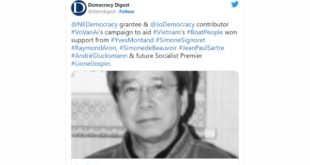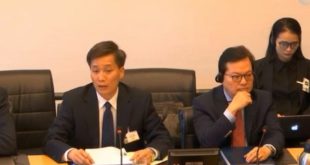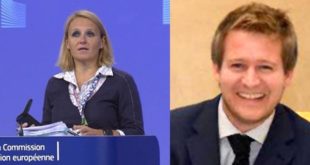HANOI Vietnam, April 10, 2007 (AP) – One of Vietnam’s leading dissidents is disappointed that U.S. President George W. Bush has not taken a stronger stance against the communist government’s human rights abuses, a Buddhist organization said Tuesday.
Thich Quang Do, a dissident monk who lives under virtual house arrest, met with a U.S. State Department representative Monday. He told the official that Bush should have raised the human rights issue when he visited Vietnam last fall, according to the Paris-based International Buddhist Information Bureau, which speaks for Do’s outlawed church.
Deputy Assistant Secretary of State Eric G. John had a rare meeting with Do, deputy of the Unified Buddhist Church of Vietnam, at his Ho Chi Minh City monastery.
According to the Buddhist group, Do’s “hopes had been dashed” because Bush didn’t publicly raise human rights issues when he came to Hanoi for an Asia-Pacific economic summit in November.
“I believe that all people living under tyranny, not just in Vietnam but in North Korea, Burma and elsewhere, shared this disappointment in the U.S.A.,” the group quoted Do as saying.
Do called on the U.S. to link its economic policies to human rights and use trade as leverage over Hanoi. Trade between the two nations has boomed since they implemented a bilateral trade deal in 2001.
Speaking to reporters in Hanoi on Tuesday, John confirmed that he met with Do but wouldn’t elaborate.
John said the U.S.-Vietnam relationship is growing closer and that the U.S. is “very optimistic” about their future ties, but stressed it has ongoing concerns about Vietnam’s human rights performance.
Vietnam has recently cracked down on dissidents, arresting two Hanoi human rights lawyers and sentencing a Catholic priest to eight years in prison after he tried to establish a pro-democracy political group.
Last week, the situation escalated when Hanoi police blocked the wives of several dissidents from attending a tea at U.S. Ambassador Michael Marine’s residence with U.S. Congresswoman Loretta Sanchez, a California Democrat.
John said he had raised the crackdown during his meetings with Vietnamese officials.
“Vietnam has reached a level of development where it should be confident enough to allow the space necessary for a greater political discourse,” he said. “It doesn’t seem logical to me or to the U.S. government that it would imprison people for trying to contribute to that political discourse.”
John, whose territory includes East Asia and the Pacific, came to Vietnam as part of his regularly scheduled visits to the region.
In addition to human rights, John and his hosts discussed regional security and trade issues.
 Quê Me Quê Me: Action for democracy in Vietnam & Vietnam Committee on Human Rights
Quê Me Quê Me: Action for democracy in Vietnam & Vietnam Committee on Human Rights



